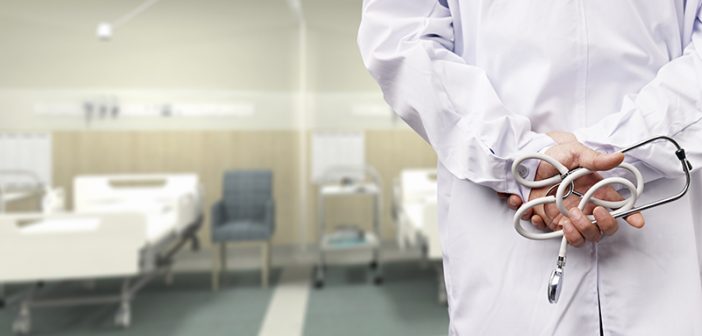It was almost like an ordinary hospital visit stint to me when my grandfather got admitted to the hospital the past week, except that it has totally made me a convert about the nursing profession. Here are some takeaways that we all can probably learn a thing or two from, and perhaps it will make us treat our nurses better than ever before.
-
Nurses are your support system during your entire stay
Like every other job, the responsibility of a nurse is as heavy as the responsibility to the one you’re carrying. In fact, theirs is probably heavier in the most literal terms. You may have misconception that nurses only help to bathe or give patients medicines, but be prepared for a surprise. Their responsibilities extend from administering the right dosage of medicines or injections, transporting the patients physically from bed to bed, memorising every patient’s description and diagnosis, procedural appointment to the nitty gritty of changing a wound dressing. But it was one part of the job I feel many have overlooked, and yet to me is the most admirable trait that nurses carry – providing emotional support to all their patients.
I saw them talk to the aged patients as though they were family, and it made me gape sometimes. I saw how a nurse motivating a patient to try to regain his walking ability every single morning when she came around to his bed for breakfast. I stayed there for a gruelling two weeks and that same nurse never grew tired of doing the same thing. Some nurses even conscientiously watered bouquets of flowers given by relatives but left unattended by patients.

Photo © Monkey Business Images | Shutterstock
-
Nurses are your best friends in the hospital
In the same ward, one particular nurse struck a chord with me with her beautiful energy. I later identified her as Senior Staff Nurse Hong Pei Qing, who appeared to be the patients’ favourite person around. Every afternoon, she would be seen walking around with different wheelchair-bound patients and would push them to have a stroll around the hospital compounds. With a million dollar smile and a face brimming with energy, her voice filled the ward with positivity and many visitors can be seen standing from their bedside chairs to see who was the person was. I was among one of the curious onlookers, clearly impressed and touched by her sincerity.
-
Visitors have to respect their authority in handling patients
Sometimes, we Singaporeans can be really demanding but we surely could do with more consideration of the nurses occupations. I overheard on many occasions during my stay there, relatives of patients demanding for detailed diagnosis and reasons for the patient’s conditions. I suddenly remembered a close friend of mine who related how doctors would be in a better position to convey those information to the relatives. This according to her is to avoid any room for miscommunication in terms of a patient’s diagnosis, or conditions.
-
Nurses undertake a life and death responsibility towards patients
Administering the wrong medicine or amount can lead to many dire consequences including death, which is why the nurse is seen wearing a medication vest that reads “Issuing Medicines, Please Do Not Disturb”. For real, try asking them for a cup of water while they count the amount of Ibuprofen pills to issue you, and risk getting Warfarin instead for your fever.
-
Nurses are more in touch with the patients
They are likely to be the ones that vouch for your behaviour and recovery progress, as they are constantly on their toes monitoring the health status of each and every patient in their assigned ward. I took a little time in the evening when my granddad slept to interact with the nurses who seem very tired after going on multiple rounds to entertain the different patient’s antics. My granddad was no exception to the list of people who may have made their job a little tougher, but I am glad they handled my grandpa so well.
-
They are educators for your recovery
The fact that the nurses take turns on three shifts to observe you during your entire stay would speak a lot about what they know about your condition and your process to recovery. Relatives should also proactively learn how to care for the relatives instead of throwing everything to the nurses. Not knowing the procedures of handling the patient can be detrimental to the eventual full recovery. Take a little time to learn a thing or two, you’ll not lose anything.
-
They risk their health for yours

Photo © sfam_photo | Shutterstock
Hospitals are undeniably the hotbed for viruses, infections and whatnots. Yet, these warriors run no fear of getting infected and still vigilantly care for the patients despite everything. When asked, Nur Syafiqah Othman, 23, staff nurse from one of the local hospitals commented: “Hospital may be the dirtiest place to ever be in, but I take pride in my job because I want my patients to get out of the rut as soon as possible.”
Throughout the entire stay in the ward my grandfather was in, I was truly amazed by the patience of the nurses in their scrub suits. Truly, heroes aren’t usually clad in glamorous clothes and Louboutins, but they’re often in soiled uniforms and black safety boots.




